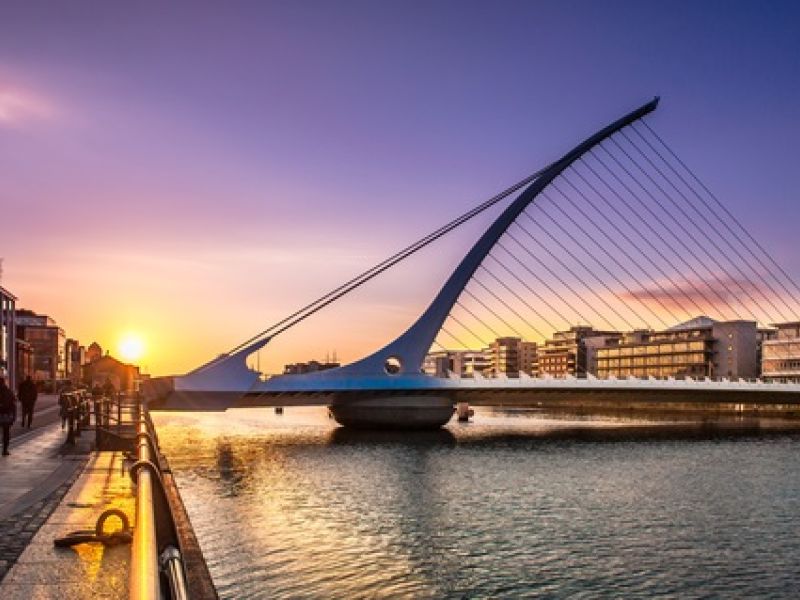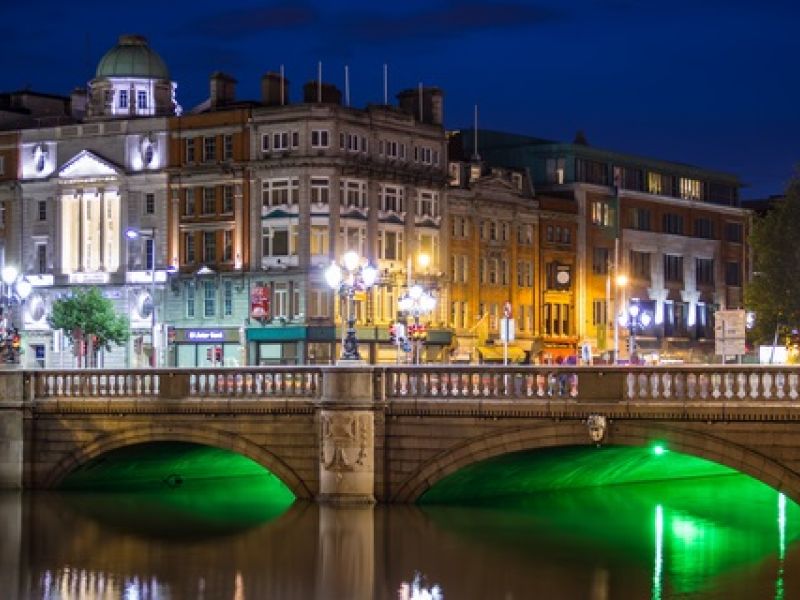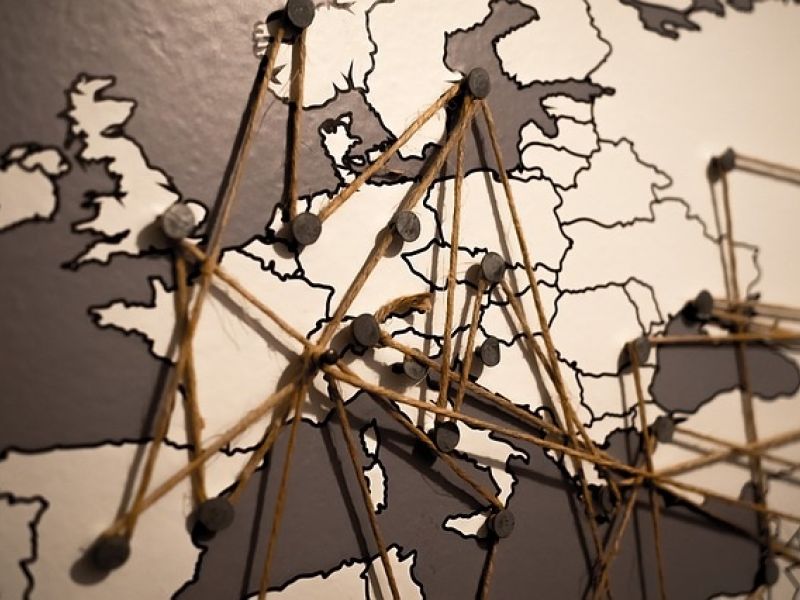Ireland’s status as a thriving modern economy is often taken for granted. Yet 30 years ago, the attractiveness of Ireland to businesses from across the globe could scarcely have been seen coming. A prolonged economic crisis made this largely agrarian country feel like an afterthought even within European business circles, let alone further afield.
The journey Ireland has been on since that point has been nothing short of extraordinary. Here’s an overview of how Ireland went from a dire economic situation to an attractive destination for startups and corporations alike - and why it’s such a great place to start a business today.
The birth of the Celtic Tiger
Ireland’s nickname of the ‘Celtic Tiger’ has its origin in another 20th century success story: that of South Korea, Singapore, Taiwan, and Hong Kong, known as the ‘Four Asian Tigers’. Inspired by Japan’s policy of export-oriented industrialisation following WW2, Hong Kong was the first to find success in manufacturing, becoming a textile industry hub, with Singapore soon following suit. Heavy government intervention in South Korea and Taiwan in the 1960s then led to similar levels of industrialisation, aided by close cooperation with the United States.
Related article: How to start a business in Ireland in 8 Steps
While Taiwan was busy establishing the backbone of its modern economy by making microchips in the 1980s, Ireland’s economy was floundering. An economic crisis had seen unemployment figures hit 20%, with 1% of the population emigrating for better opportunities. Yet it was that same year that Taiwanese chip manufacturer TSMC was founded - 1987 - that things began to turn around. Cutting taxes and public spending and deregulating businesses, Ireland began to pivot to a service economy, setting the stage for its modern success.
Reforms and deregulation
As an English-speaking country with a friendly business environment, Ireland started to be seen as an increasingly attractive outpost for European operations. Apple set up its base in Cork in 1980, while Microsoft opened its doors in Dublin in 1985 - blazing a trail for hundreds of other tech businesses over the following decades.
This wave of investment might have been a trickle if not for an admirable bit of planning. The Irish government, foreseeing the need for a more skilled workforce, had significantly invested in education during the 1960s and 1970s. Right as tech businesses began moving in, this focus on marketable skills paid off, with local talent proving plentiful. At the same time, Ryanair was proving that domestic businesses could also thrive, boosting the economy and inspiring entrepreneurs across the country.
During this period, Ireland experienced unprecedented economic growth, recording annual growth rates up to 10%. Apple and Microsoft both ramped up investment, attracting other tech firms who were looking for a convenient European base. Meanwhile, financial deregulation made it easier to acquire credit and buy properties, boosting both real estate and construction. A burgeoning middle class bought the same products that Ireland was increasingly known for developing.
Related article: What are the tax benefits for businesses in Ireland?
While the financial crisis of 2008 hit Ireland particularly hard, stringent austerity measures and international aid have helped it to bounce back. Today, Ireland is not just the European home of American tech giants, but a launching pad for innovative startups in its own right. With industry-leaders in SaaS, biotechnology, fintech, and more, the country's reputation for business-friendliness and high quality of life make it a compelling destination for young entrepreneurs and seasoned professionals alike.
Brexit and the Northern Ireland Protocol
Of course, it’s fair to say Ireland's journey hasn't been without its challenges. The Northern Ireland Protocol, an aspect of the Brexit Withdrawal Agreement, aimed to prevent a hard border between Northern Ireland (part of the UK) and the Republic of Ireland (an EU member). The Protocol led to a de facto customs border in the Irish Sea, causing tensions and trade disruptions between the two countries and the two blocs.
Related article: The difference between starting a business in the UK & Ireland
Recent resolutions around the Protocol have sought to minimise these disruptions, while making sure to preserve the delicate peace established by the Good Friday Agreement. Collaborative efforts, understanding, and diplomatic dialogues between the UK, EU, and Ireland have made strides in ensuring smooth trade, safeguarding regional stability, and ensuring that both parts of Ireland can continue their economic growth.
Why Ireland is best for businesses
Ireland’s status as a European business destination has been hard-won. Its popularity today is the result of some smart decision-making, pragmatic policies, a bit of luck, and a reputation that now stretches back decades - and continues to attract startups and corporations today.
Pro-business environment
Right from the get-go, the Irish government took steps to create an attractive ecosystem for foreign businesses. This included a low corporate tax rate (12.5%), which is markedly lower than close rivals the UK, and continues to attract international corporations. Bodies like the IDA (Industrial Development Authority) also supplement this by providing incentives and grants to foreign companies willing to set up shop in Ireland.
Strategic location
Ideally situated between mainland Europe and America - and with an English-speaking population - Ireland serves as a strategic entry point for American businesses looking to tap into the European market. This geographical advantage made it an obvious choice for tech giants such as Google, Facebook, and Apple to establish their European headquarters in Dublin, before branching out to more specific regional and country-based HQs.
Rich local talent
Ireland boasts a young, educated, and highly adaptable workforce. The country’s universities, including Trinity College Dublin and University College Dublin, have been paramount in producing top-tier tech talent that appeals to the global tech industry - attracting students from across the country, Europe, and the rest of the world.
Supportive startup ecosystem
With a host of incubators, accelerators, and co-working spaces, Dublin – and increasingly cities such as Cork and Galway – have become vibrant centres for innovation. Initiatives like Enterprise Ireland have further contributed to this positive startup environment, providing both financial and logistical support to budding entrepreneurs.
EU membership
Despite the tumult of Brexit, Ireland's unwavering status as an EU member has made it a stable and attractive option for businesses looking to operate within the European Single Market. For British companies in particular, setting up a subsidiary in Ireland became a popular strategic move to continue enjoying the benefits of the Single Market, while still staying close at hand.
The success of Ireland as a startup destination and business hub continues to be an example for less-heralded nations. What was at the time a struggling economy is now one of the brightest in Europe, and could one day overshadow its close neighbours - all thanks to embracing tech talent and entrepreneurs from around the world.
For more information on opening a company in Ireland, you can download our free guide below which gives you all the information you need to start your business in Ireland.







